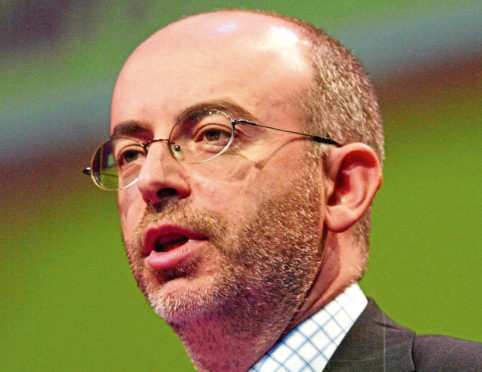
New rules should ban ministers and advisers from leaving government to go straight into jobs in the private sector, according to lobbying experts.
The call comes after a former MSP and adviser to the First Minister left for a job lobbying for state-owned ferry operator CalMac.
Stewart Maxwell is taking up the role of policy and public affairs manager at CalMac parent company David MacBrayne. The advert for the job, paying up to £50,000, stated: “We are looking for a politically savvy senior manager who knows their way around the corridors of power and the people who shape and influence the policies that affect our industry.”
The job description adds that the successful candidate must have “a contact book bursting with local and national politicians and special advisers” and must be “able to facilitate our most senior officials meeting with them”.
But campaigners and politicians say the rules should be tightened to ensure a buffer between ministers and advisers leaving and then taking up lobbying roles in the private sector.
William Dinan, senior lecturer in communications at the University of Stirling, and former member of the Scottish Parliament working group on lobbying, said: “The CalMac advertisement is refreshingly candid – no one can be in any doubt that the role is about influencing government policy and facilitating access to decision makers.”
Mr Maxwell will likely be asked to push for the completion of two new CalMac ferries for Arran and the Hebrides, which are more than £100 million over budget and several years late following a dispute between Caledonian Marine Assets Ltd (CMAL), the state-owned company that procures ferries used by CalMac, and the Ferguson shipyard, which was bought by the Scottish Government.
Mr Maxwell lost his West of Scotland regional list seat in the 2016 election but less than six months later he was appointed a special advisor (SpAd) to Nicola Sturgeon. Scottish Government SpAds are paid between £40,000 to £84,000 a year.
During a 13-year career as an MSP Mr Maxwell spent two years in government between 2007 and 2009. Dr Dinan, who has written books about lobbying, said: “There is no meaningful oversight of what ex-ministers or SpAds actually do in their new roles in the private sector, and the system relies on the probity of the individuals involved to stick to undertakings not to allow conflicts of interest to arise.”
Former Scottish and UK ministers, and senior civil servants, are expected to apply to the Advisory Committee on Business Appointments (ACOBA) for approval when they get a new job in the two years after leaving their previous post. But ACOBA is not a statutory regulator so it cannot enforce its advice.
Dr Dinan said Canada and the US have a stricter system, which includes a “cooling off period” before former politicians can take influential roles in the public and private sector.
Labour MSP Neil Findlay said Holyrood must look at tightening the rules to prevent special advisers exploiting contacts made while working in government to further their career in the private sector. He added: “The Scottish Parliament has to look at this.”

Enjoy the convenience of having The Sunday Post delivered as a digital ePaper straight to your smartphone, tablet or computer.
Subscribe for only £5.49 a month and enjoy all the benefits of the printed paper as a digital replica.
Subscribe